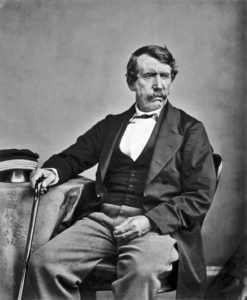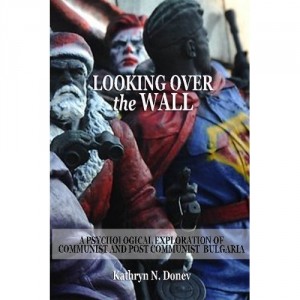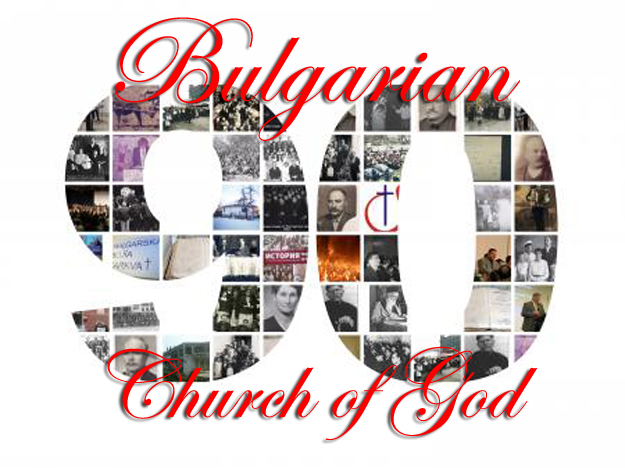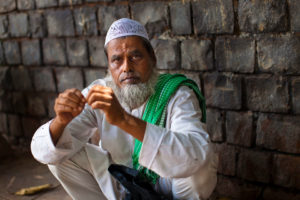The Bulgarian Church of God Celebrates its 90th Anniversary
Excerpt from “Spirit-Empowerment of the Poor in Spirit: Dr. Nicholas Nikolov and the Establishment of the Bulgarian Assemblies of God in 1928” presented at the Missions & Intercultural Studies Interest Group, 47th Annual Meeting of the Society for Pentecostal Studies (Lee University, 2018)
In 2018, the Pentecostal Union in Bulgaria is celebrating 90 years since its establishment. The organization of the Bulgarian Assemblies would have been impossible without the leadership of Dr. Nicholas Nikolov. But while Nikolov successfully fulfilled the mission set by the American Assemblies of God, the larger part of Bulgaria’s young Pentecostal movement remained unregistered and mainly underground. Recently published intelligence reports by the Communist Regime propaganda placed the beginnings of the Bulgarian Church of God in 1922-1924 – much earlier than the separation from the officially organized Pentecostal churches. The establishing meeting of the Bulgarian Pentecostal Union in 1928 simply reaffirmed the already existing division among Bulgarian Pentecostals and the beginning of the Bulgarian Church of God. The year 2018 rightly marks its 90th anniversary.
Unregistered Pentecostal Churches and the Underground Bulgarian Church of God
The larger majority of Pentecostal churches in Bulgaria remained reluctant to join the Pentecostal Union with particular skepticism toward registering with the government in 1928. Many perceived the new organization with 20 members led by Nikolov as betraying the original Pentecostal message brought by Zaplishny and Voronaev. As the older Pentecostals in the country saw it, a young man sent from America, took a dozen of believers and formed a new organization – nothing others have not done before him.
Almost immediately a prophetic word was given to Spas Stefanov,[1] in whose Sofia home Pentecostal meetings were held. The prophecy was from the book of Isaiah 8:10-12: Say ye not, a confederacy[2] [union], to all them to whom this people shall say, a confederacy [union]; neither fear ye their fear, nor be afraid.
No more than a fortnight later, the largest recorded earthquake in Bulgaria occurred and was immediately seen as divine confirmation; especially when taking under account, that its epicenter in Chirpan, and the close-by Plovdiv and Mirichlery, were renowned cities of Pentecostal Evangelical work at the time. The effect was much like the Great Earthquake of San Francisco during the Azusa Street Revival. Another confirmation to the prophecy was seen during the following winter when the Black Sea froze right at the headquarters of the newly established Pentecostal Union in Bourgas.
With a confirmed prophecy in hand, the majority opposing the new organization was lead by the seven presbyters ordained personally by Dionisey Zaplishny during his first visit in Bulgaria. They accented on the leadership and gifts of the Spirit in the unregistered (free) churches without manmade organization and order. Most of the groups that united around them were in Northern Bulgaria in the cities of Pleven, Lovetch, Etropole, Vratsa, Vidin, Montana, Nikopol, Troyan, and village churches near Ruse, Razgrad and Yambol. Presbyter Stoyan Tinchev formed and led the largest group among them, which grew into an underground movement during the Communist Regime and formed the Church of God in Bulgaria.
Boris Grozdanov, who held direct communication and was personally visited by Swedish Pentecostal evangelist Axel B. Lindgren, led groups in Verdikal/Bankya near Sofia and Pernik (both places visited often by Zaplishney).[3] Many more were located in Southern Bulgaria, between Stara Zagora and the Turkish border at Malko Tarnovo, led by Ivan Broshovsky of Yambol.
[1] Father of pastor Toma Spasov, who was sentenced and deported in the 1980s by the Communist Regime with two other Church of God pastors for leading unregistered underground churches.
[2] Translated in the Bulgarian Bible as “union” and resembling the newly established Pentecostal Union.
[3] Letter from Lindgren instructed him to hold the pure teaching and stay out of organized religion. Recorded December 14, 1930 in Protocol 14 of Minutes of the Executive Committee of the Evangelical Pentecostal Churches in Bulgaria (Personal archive of the author).
Recommended Reading:
- Autobiography of Pastor Dionisey Zaplishny (cir. 1927)
- Dinko Zhelev, former president of the Bulgarian Pentecostal Union (personal archives)
- Diulgerov, D.V. (with statistical data submitted by Dr. Nicolas Nikolov) in Annual Publication of the Theological Faculty at Sofia University – Sofia, 1932
- Donka Kinareva: Family Chronicles by J. Markov (unpublished)
- Joseph Gourbalov, Birth and Early Historical and Theological Development of the Baptist Movement in Bulgaria, 2002
- Letter from Axel B. Lindgren to Boris Grozdanov (April 10, 1930)
- National Archive Records, Ruse – Bulgaria (Archive collection, F319K)
- Nikolov, Nicolas and Martha. Ministerial files, personal papers and family correspondence (1924-28)
- Paul Gourbalov, Birth and Development of the Evangelical Pentecostal Movement in Bulgaria (manuscript)
- Travel Diary of Marry Zaplishna (cir. 1924)
52 DAYS AWAY
The Nehemiah Experience: Devil, did you hear, I done built the wall!
2018 Revival Harvest Campaign: The Nehemiah Experience
Nehemiah 1: Who cries, fasts and prays for the desolated church?
Nehemiah 2: Dear, devil, I am back!
Nehemiah 3: 12 gates of Jerusalem
Nehemiah 4: Devil, did you hear, I done built the wall…
(1)Time to enter through the Door
(2) Time for junk no more
(3) Time to wage war
Calling on the Nehemiah Generation
Strangers will come in the Church
And the walls need to be fortified…
GOD is DOING a NEW THING
The Holy Ghost within us cries for holiness and we shall not be oppressed, depressed, repressed, regressed, transgressed by this dead and dying world. For there’s a standard of heaven and a judgment of God; a rule of holiness and a road of righteousness which must begin nowhere else but with the household of God; where God is doing a NEW thing and speaking for a SEASON of:
– Re-covery
– Re-claiming
– Re-versal
– Re-juvenation
– Re-imbursement
– Re-cuperation
– Re-organization
– Re-volution
– Re-envisioning
– Re-freshing
and re-telling the old, old story that a King has left His glory and died on cross on Calvary to save a wretch like me…
Compelled by the love of Christ
 When David Livingstone was asked why he became a missionary to Africa, he replied, “I was compelled by the love of Christ.” It leaves us in wonder, can one truly show the love of God without obey to send, be sent and go. This is not meant to be critical, but it certainly bids the question, what type of Christians attend church two-three times weekly and call it done. Should we truly expect people to simply attend church because we want them to come to our program or should we be the ones to send, be sent and go to the periphery of society where the disenfranchised, marginalized and outcasts live. Jesus did!
When David Livingstone was asked why he became a missionary to Africa, he replied, “I was compelled by the love of Christ.” It leaves us in wonder, can one truly show the love of God without obey to send, be sent and go. This is not meant to be critical, but it certainly bids the question, what type of Christians attend church two-three times weekly and call it done. Should we truly expect people to simply attend church because we want them to come to our program or should we be the ones to send, be sent and go to the periphery of society where the disenfranchised, marginalized and outcasts live. Jesus did!
RAMADAN: How to reach Muslims with the Gospel?
Over 1 billion Muslims around the world are now observing Ramadan, a month of fasting and reflection. While most adherents to Islam are spending their holiday on personal discipline and dedication, more extreme factions are using the time of year to call for violence against Christians.
Ruth Kramer of Mission Network News reports:
“During Ramadan, the jihadists are calling for holy war. They’re calling it kind of an obligatory act of worship. What you typically see during Ramadan is a real spike in the violence. On the day that Ramadan began, jihadists attacked a bus that was filled with Coptic Christians in Egypt and killed 29 of them; about half of those were children as young as two years old.”
In the face of such violence, as we’re bombarded by stories of increasing barbarism, how should the body of Christ respond?
“One of the biggest tools we have in our tool chest is prayer, and we just don’t know how to pray for Muslims, how to love Muslims, to come alongside them and say there is another way.”
“If we knew how to pray for Muslims, and we joined together in prayer, imagine what God could do through that.”
To help us learn to pray for our Muslim neighbors, Prayercast, a branch of OneWay Ministries, is hosting the Ramadan Prayer Challenge.
The campaign sends daily prayer notes directly to your smartphone, focusing on specific regions and concerns of Muslim people. They’re inviting Christians across the world to unite in prayer for the next month, to ask “with one voice that God would shatter the deception of Islam with the presence and truth of Jesus Christ.”
How to Evangelize a Muslim
- The testimony of the Gospels provides the most reliable witness to Christ. Preach the Gospel as it is! Do not soft-pedal around biblical terminology to please Muslim hearers. Be clear about what you believe and why you believe it. Know the Scriptures well, and know the confessions and what exactly you believe (catechisms). The more you know about your faith, the easier it is to talk with Muslims.
- There is no gospel in Islam. The Qur’an clearly contradicts the essence of biblical Christianity and rejects the triune nature of God, disfigures the biblical doctrines of the person of Christ and denies justification through faith on account of the work of Christ on the cross. While claiming to be the perpetual religion of nature and history, following in the footsteps of Christianity, it attempts to justify its claims by asserting that the Word of God, revealed in the New and Old Testament, is corrupted. Our apologetic discussion with Muslims should be to defend the Scriptures and prove that the Scriptures aren’t corrupt as Muslims claim. Our goal is to open up their minds a bit so that they can start reading the Gospels for an eyewitness or a companion of an eyewitness to the real Jesus.
- Always ask them the classic evangelistic questions. ‘What about your salvation?’ ‘Can you be certain of this?’ ‘If you were to die, can you be certain you’d enter heaven at some point?’ Their response is always, “No, I couldn’t be certain, nor do I care.”
- Most western missionaries are result oriented; instead you should be concerned about preaching the Gospel correctly (as it is). The essence of Muslim evangelism is accurate communication about sin and grace: simply and clearly. Talk about the law and the gospel, not about infralapsarianism and divine simplicity! Don’t compare the Bible with the Quran. That comes later!
- Always remember that you are talking to Muslims. Avoid the use of Christian jargon. Speak about real sin, real guilt, real shed blood! Do not be ashamed to use Jesus’ direct and indirect titles clearly such as ‘Son of God’ ‘Lamb of God’ ‘New Adam’ ‘I AM – YAHWEH’ ‘Savior’ ‘Almighty God’.
- Use tact and be charitable! Don’t talk about reprobation with a Muslim or a new convert who has just lost an unbelieving family member. Be kind and courteous! Many Muslims act and speak out of ignorance, not malice.
- Be sensitive to their past – if they’ve had a bad experience with Christians, missionaries or churches, struggled with a particular sin etc., be understanding and compassionate! Muslims hate self-righteousness, and rightly so! Do not soft-pedal the law and the guilt of sin, but make sure they understand that you are a justified sinner, not a self-righteous “know it all” who is here to correct them!
- Muslims will ask you many questions about your faith. Don’t feel like you have to answer all of their questions in one day. However, make sure they hear your answers to one or two questions clearly. Stick with the subject – don’t get sidetracked. When the conversation wanders, pull it back to center stage – the law and the gospel.
- Muslims will ask you to comment on their faith. Don’t go there; they will not benefit from your criticism (or feigned approval) of other religions. Your job isn’t to debunk Islam but to give a clear witness to the truth of the Gospel. Instead of letting them drag you into the topic, turn the tables and ask them questions. Let them articulate their own understandings of the religious themes you are discussing; let what you communicate be the plain truth of Christian doctrines without enumerating how Islam is wrong.
- The message of the Gospel offends Muslims. It is okay! Don’t worry! God will take care of the hearer. It is His message. Muslims will not convert to Christ if they are not offended by the message of the Gospel. Offend them by being very clear about the teachings of Christ!
- Do not use any ‘Muslim friendly’ bible translations. ‘Muslims friendly’ bible translations are very deceptive! They are not true to the original Scriptures. Muslims see it as a form of deception by missionaries!
- Muslim evangelism is not about winning an argument, but leading Muslims to Christ with the Gospel. Discussions may get heated and intense at times – that’s okay. But the purpose of Muslim evangelism is not to show why you are right and Islam is wrong. It is to communicate the truth of the gospel! The message is to be the offence! Not you!
- When Muslims are apathetic about sin – use the law. When Muslims have doubts or are skeptical – use basic apologetic arguments. When Muslims express guilt for sin – present the Gospel.
- Evangelism is about leading Muslims to Christ. Convincing non-Christians or Evangelicals that Reformed theology is true, falls under the heading of polemics. Don’t confuse the two.
- When talking to Muslims stick with what all Christians hold in common wherever possible. Leave the internecine fighting among Christians aside when talking to Muslims. A Muslim will not care so much about differences between the Catholics and the Protestants or Lutherans and Baptists. Issues such as the exact meaning of the Lord’s Supper or methods of baptism should be addressed later, during discipleship!
- Wherever possible, when talking to Muslims speak about Christianity as factually true – “Jesus did this,” “Jesus said this,” “people heard and saw him,” etc. Keep away from the subjective line of approach– “it works for me,” “this is how I feel about it,” this is my testimony.”
- Before meeting with your Muslim friends pray for wisdom.
- Muslims will respect the text you quote, but not your personal opinion. Trust in the power of God the Holy Spirit working through the word! Cite texts directly from the Scriptures with attribution. Jesus says, Paul says…. It will not help Muslims to hear your personal opinion on biblical issues. So, don’t say “I think,” or “it seems to me” or “I feel like…” Muslims interpret your thoughts, your take on things or your feelings as part of the corruption of the Bible.
- Don’t rush things with Muslims. Just because a Muslim is not ready to trust in Christ after one encounter does not mean that effective evangelism has not taken place. Pre-evangelism is equally vital. You may plant, but someone else may have to water! Always remember that it is not us who convert the Muslims to Christ but God Himself (in His time)!
- Remember that evangelism isn’t complete after you first present the Gospel message to a Muslim. Evangelism has to continue even after they repent and give their lives to Christ. They have to sit under the ministry of the Word. Evangelism of a Muslim is complete only after they are baptized, brought to the Lord’s Supper and sat under the preaching of the Word at church. In other words, evangelism never ends. Discipleship is evangelism.
- Treat Muslims as objects of concern, not notches in your belt! Establish relationships and friendships with Muslims whenever and wherever possible.
- Don’t forget that a prophet is without honor in his own home. The chances of Muslim converts leading their own unbelieving family members (or someone close to them) to Christ by themselves is remote. Encourage them as they give witness to what they have learned, but also pray for God to bring other people into the picture to help evangelize their families.
- Don’t force things. If your Muslim friends balk, ridicule and otherwise are not interested, back off. Find another time and place. If after repeated attempts to communicate the gospel, and someone still shows an unwillingness to hear what you have to say, “shake the dust off your feet and move on to a new town!”
- Be willing to get your Muslim friends the resources they need: be willing to provide them with a Bible (not just a New Testament), the right book to read, and certainly an invitation to your home and later an invitation to attend your church or to a Bible study, etc. Never ever use a Muslim friendly bible translation. These translations are a product of some western mission agencies without any support from the national churches who know their context best.
- Pray for opportunities to evangelize Muslims. Make sure to let your Muslim friends know that you regularly attend a church. Do not disconnect your evangelism effort from the church. Pray for your church – that God would bless the preaching of his word, that he would bring Muslims into our midst, and that he would bless the church with growth.
- You don’t have to become a practical Arminian to be a faithful evangelist! A Christian approach to Muslim evangelism simply means telling Muslims the truth in love without changing it. Trust that God the Holy Spirit will penetrate hearts and minds of Muslims with “the Gospel”
- Muslims love to sing Islamic hymns that tell the stories of the Quran. Islamic hymn singing is singing the words of the Quran. Show your Muslim friends some samples of Christian biblical songs with verses directly taken from Scriptures. In other words, sing the Bible to them! The role of music in human culture is to join people together. Biblically we are commanded to sing the praises of Christ. There are 694 references to singing or music making in Holy Scriptures. Participatory singing is a very significant matter biblically. There will be no singing in Hell, but the saints in Heaven will sing everlastingly. That is really amazing and remarkable! Let us show Muslims what we will be doing in Heaven.
- “Fear God and give Him Glory, because the hour of His judgment has come, and Worship Him who made heaven and earth, the sea and the springs of water.” (Rev. 14:7)
The Sinking of Cross-cultural Bridges and the Collapse of the “Western Theological Corpus”
Bridges to people and culture do not work any longer because they never touch the water of troubled cross-cultural issues. For the same reason, contextual theology does not work any more – once faced with the deep cross-cultural crises of faith and conviction, it sinks with no hope.
We have long observed the collapse of the “Western Theological Corpus,” as Andrew Walls calls the structural problem in missions today. Main reason for its collapse is the failure to give answers to the theological questions emerging from the Global South. As a result, the colonial approach of doing missions, resonating in imperialistic cross-cultural ministry and ethnic conquest for assimilation of cultures, all have failed both the indigenous people and the mission sending agencies. Prayer has hence turned into a protest and prophecy for a new reality, where the encounter of missions is no less than the very cross-roads where we encounter God and others together.
Doing Missions in the Spirit in 2018
“Strange Fire” in 2018?
A Biblical and experiential panel response to John MacArthur’s “Strange Fire” from an international Pentecostal point of view Strange Fire
Dony K. Donev with Dennis Balcombe, Hanny Setiawan and Marius Lombaard

John MacArthur, Strange Fire: The Danger of Offending the Holy Spirit with Counterfeit Worship (Nelson Books, 2013).
Almost one year ago, internationally known author John MacArthur began campaigning for his new book Strange Fire. With lots of material written beforehand by many who had not even read the book, the actual premiere was at a conference with the same name, not without some scandal to help its wide popularization. But scandal was hardly needed when the book classified most (if not all) Charismatics around the world as heretics. Тhe bottom line for MacArthur’s work was deconstruction modern day Charismatic theology and exposing it as unbiblical.
Do Pentecostal churches really offer a “strange fire” as MacArthur proposes? Could charismatic extremes practiced by some be evident in all Charismatic churches and classical Pentecostal denominations? And is it possible to declare a world wide movement of half a billion strong as heretical by observing random examples among less than 3% (three percent) of its representatives residing in North America?
The premise of this ad hominem attack is surprising, when even in Pentecostal scholarly circles we have long debated some Charismatic praxis as wrong and destructive to the movement as a whole. So, when an outsider to Pentecostalism as MacArthur jumps in and claims all Pentecostals are bad because some Charismatics have been found in the wrong, the normal response is simply to disagree. Especially when these extremes do not concern Pentecostalism globally, but as MacArthur himself admits, are defined to a North American context of ministry and even more strict and limited Charismatic circle of neo-Pentecostalism.
The purpose of this article, therefore, is to present the view of Classic Pentecostals, as deferred from the variety non-Pentecostal Charismatics. And to discuss MacArthur’s assumptions in an international Pentecostal context, though Strange Fire refuses to view Pentecostalism as the global power it has become. Perhaps, the very weakness of any theological work that seeks international recognition, but fortifies its argument only within the perimeter of westernized theology. To provoke an even deeper discussion, the study explores five of the major arguments of Strange Fire within the ministry context of Pentecostals from Eastern Europe, Africa and Asia.
Apostolic Relevance or a New Apostolic Reformation?
Admittedly, MacArthur strongest point within his attack on Pentecostals is outlining Peter Wagner’s New Apostolic Reformation movement. And even quoting Vinson Synan, who was invited to join the network for $69 a month, but declined with the response, “I could not afford to be an apostle.” But how concerned is the larger Pentecostal world about this apostolic movement? And how important is NAR in global Pentecostalism today?
Hanny Setiawan of the Bethany Church of Solo Baru, Indonesia states:
I personally know NARs and follow Wagner’s thought but, I am not sure that Indonesian charismatic churches are aware of Wagner’s thought. Indonesian charismatic churches are not strategically structured and concepted like Wagner’s way of thinking. I recognize myself has an apostolic function even though I don’t call myself an apostle (neither my community). Wagner’s book and other related books have helped me to know my calling deeper. And because I understand what my calling is, I can perform my apostolic function more efficiently.
Lifetime missionary to China, Dennis Balcombe also responds:
This New Apostolic Reformation is simply an American invention and organization by Peter Wagner and some who follow him. It has absolutely no relevance to the church in China, and I suspect in most other parts of the world. I live in the Hong Kong SAR and have not heard of anyone who is actually a part of this or calls himself an apostle. It is almost unheard of in mainland China where the church situation is much different. [Even] In the past in mainland China the church seldom used any type of titles for ministers other than ‘Servant of the Lord” or “Handmaiden of the Lord.” One reason was that for much of the past 65 years in Communist China, the house church (which constitutes the majority of Protestant Christians in China) has been illegal and persecuted to various degrees. Anyone having religious titles would possibly be marked by authorities.
Several years Peter Wagner and Chuck Pierce came to Hong Kong, and at the invitation of a local pastor, Rev. David Wang, invited many mainland house church leaders to attend an ‘apostolic ordination meeting’. They ordained several as apostles of various areas. However none of them were main leaders, and when they went back to their cities and told other pastors of the meeting, almost without exception the others totally rejected this.
Coming from my own background as a minister in post-Communist Bulgaria, I can confirm much similar experience with NAR in Eastern Europe. That there are true Pentecostal apostles is an undisputable fact; especially, when we speak of men and women who have started multiple churches and sometimes whole movements. At the same time, questioning the authenticity of “apostles who never do anything” (terminology by C.Buettel/J.Johnson) has been an open praxis in modern day Pentecostalism ever since its conception at the Azusa Street Revival.
Prosperity and Poverty in the Context of Global Pentecostalism
Next to apostles and “rock star” ministers, Strange Fire addresses the prosperity movement. Yet, the global Pentecostal church is hardly a materially prosperous one. On the contrary, overwhelming evidence from around the world repeatedly proves that poverty is an ever present factor in global Pentecostalism. So, exactly how important is the prosperity teaching in Pentecostal churches around the world?
Pastor Balcombe puts it rightfully:
This doctrine is almost totally foreign to the true Chinese churches in most parts of Asia, especially Hong Kong and China. [Prosperity] is being preached and practiced to various degrees of success mostly only in some more prosperous Asian nations. We would immediately think of Singapore and the mega-church of Joseph Prince which is also well known for the teaching we call antinomianism. Though this church is large and considered to be Charismatic, we would not identify it as a solid Pentecostal/Evangelical church.
Marius Lombaard of the University of South Africa agrees that:
The Pentecostal church I was part of was very opposed to prosperity teaching. It distinguished itself from other Pentecostals and Charismatics. Members at the time ranged from ordinary poor, to middle class people and no body was above middle class.
Hanny Setiawan affirms the above by saying:
Bill Hamon’s book the eternal church has helped me map the charismatic churches in Indonesia. With the Full Gospel movement (more traditional Pentecostal churches), Indonesian Pentecostal were “updated” into charismatic teaching in 1998 during the Asian turmoil. That’s when the prosperity teaching came into various emerging mega churches.
And then he wholeheartedly declares:
As part of both Pentecostal and charismatic churches I strongly state that I hate prosperity teaching. And yes, we have issue upon this teaching.
For working with the poor, I have to be honest that what I am doing is not typically with charismatic/prophetic churches in Indonesia. But few churches have already started doing work for wide-nation program in the social sector.
Even in my own European descent, I have to agree with these views when applied into global Pentecostal context. In my own dissertation a decade ago I wrote of Bulgarian churches that planted in North American context of ministry.
The fifteen years of economical crises, political disorder and the high rate of unemployment in Bulgaria have not helped the church plan for the future or find alternative ways for support. Thus, the Bulgarian Protestant Church remains a poor church. Moving to a land of greater prosperity (viz., North America), however, has not brought much improvement to the situation. The financial blessings enjoyed by individual Bulgarian believers are not always reflected in the financial ability of the church. Even within the American context, the Bulgarian church remains a beggar in a land of plenty (Bulgarian Churches in North America, 2004).
Prosperity is a mindset, a worldview of its own. And how it is measured remains entirely cultural. But one thing is for sure, it is not the worldview of the entire global church, regardless if they are Pentecostal, Baptist or even Catholic. In other words, no one movement can be holistically and globally prosperous. And when ministering among the poorest of the poor, the Bible does remind of Jesus’ teachings whereas our personal prosperity cannot remain self-centered. It must be applied toward the needs of the others as well. Or we are in the danger of Laodicea—to be rich, yet poor in the site of God.
Miracles shall cease? Not according to the Bible
From his personally-modified cessationist theology, MacArthur insists that miracles and healings are not consistent with the view of the church in the 21st century. This is hardly true for all Pentecostal groups around the world. Many among them have come to know Christ and exist as a church through no other way but by a miracle. And they are not hesitant to testify of that. If asked, virtually all Pentecostals can very vividly describe the last occurrence of miracle and demonstration of spiritual gifts they’ve witnessed recently in their own spiritual walk with specific details (date, place and event).
Hanny Setiawan responds:
I can boldly say that MacArthur is wrong in this statement. In fact, I am working on writing all the miracles happened to us in a website. We believe miracles are usual in Indonesia. Many Indonesians are uneducated and miracles are expected. Prophetic dreams, directions, visions, are widely experienced. In my ministry network, in fact, we move heavily in a divine direction. We teach the difference between Titanic Teaching and Noah’s Ark. What MacArthur suggests is to build ministry like building the Titanic, all brain and logic. We don’t buy into that! We build our ministry based on total obedience to divine direction. Sometimes it’s illogical and insane, but it’s always biblical. Illogical doesn’t mean un-biblical.
Dennis Balcombe also responds:
This is absolutely not true in most of Asia, especially in China. I have been travelling throughout the world for the past 45 years, and I would say this is not true of most of the part of the world we identify as ‘third-world nations’. This would include S. E. Asian nations, especially Indonesia, India, most of Africa and South America. I have been working extensively in mainland China since 1978, and have spoken to thousands of individual Christians and have deeply researched the history of Christianity and revival going back over 100 years. Almost without exception people tell me they became Christians due to some miracle they experienced, saw or heard about.
While in China not every Christian believes in or has experienced speaking in tongues, you would have to travel far and wide to find a Christian who doesn’t believe that miracles are for today and take place in the church today. It would take volumes to write in detail all the miracles I have either witnessed or heard about in China and other nations I have travelled, and this year Charisma Publishers will publish a new book I just wrote, China’s Opening Door with a few chapters dedicated to the miracles in China.
Like the churches in China today, the church under the Communism Regime could not exist without miracles. The fall of the Berlin wall was a miracle of its own. This alone is proof for supernatural signs at an international scale.
There is a video recorded from that time where a woman born blind who received her vision during a Bulgarian Church of God service in Sofia, Bulgaria. It was shot while Lee University’s Campus Choir lead by Dr. David Horton visited Bulgaria. While people are praising God for the miracle and the choir is singing, the camera drifts in the crowd to record a bearded man dressed in pure white standing taller than anyone else in the auditorium. His appearance is so amazingly different from the rest of the congregation that one immediately thinks of Jesus standing in the crowd. The video was lab tested upon returning to the States and was proven authentic. Yet, not a single person remembered seeing that man during the service.
Prophecy shall cease, but only where charity has failed
The argument of secession of the gifts of the Spirit is presented mainly in ch. 12 of MacArthur’s “Strange Fire.” It represents the heart of his argument against Pentecostalism through the years. This argument has been theologically reputed and practically invalid. But most of all, it is simply not true experientially as prophetic messages in or without tongues are still evident in multitude of Pentecostal churches around the world today.
Hanny Setiawan is certain that:
Again, MacArthur is very wrong. Without the work of the Spirit, Indonesian churches cannot survive. We live in the biggest Muslim nation in the world. And prophetically, we get the message that Indonesia is the last puzzle of the world. I share this to show how prophetic is integrated in our strategic ministry policy. Now we work toward 34 provinces by faith through the Holy Spirit without money backup. How could MacArthur explains this?
Marius Lombaard underlines the social aspect of the prophetic church by saying:
In my country, Christianity is too diverse to give any idea what the “majority” believes. Many may still believe in prophecy, but they would nuance their views of it differently. Prophecy can be wrongly caricatured. My beliefs about prophecy is that it is a function of the church to speak prophetically about contemporary cultural and social issues, rather than individuals being “filled with the spirit” and randomly telling people what they believe God to be telling them. I do think when prophecy takes my latter description of being “filled” with the spirit and randomly speaking things one believes God to be telling you, that there is a high risk of it being false.
Dennis Balcombe also admits as a Pentecostal that:
On rare occasions there are “prophecies” that violate the Word of God, are judgmental and condemning, and are spoken with malice and evil intent. We will always immediately deal with such prophecies, ask the speaker to be quiet, and let the congregation know that the “prophecy” was wrong.
Thus, prophecy is always judged by the written Word of God, the witness of the individual and the pastor or spiritual head of the one receiving the prophecy is usually present, or the words are given to him to follow up on. Over the years, we have found almost all of these prophecies to be accurate and are amazing inasmuch many of these giving the prophecies know nothing about the individuals they are speaking to. We see a powerful confirmation of the word of knowledge.
However, a small percentage seems to have ‘missed the mark’ and were not suitable or applicable to the individual. We would tell the person if there is no confirmation to ignore such ‘prophecies’ and we would point this out to the one giving the prophecy. If it happened often, we would not allow that person to continue to operate in this gift. There are some individuals, almost always from the USA or other Western nations, who will from time to time give predictive prophecies relating to major world events, world leaders, earthquakes and other natural judgments, etc. We usually only read about these prophecies in various public meetings, but not in our local church.
All through the Bible, persecution of the community of God is overcome mainly through prophetic presence and power. For this reason my masters’ thesis Pentecostal Primitivism argued that a persecuted movement, as Pentecostals have been for many years and in many places around the world, cannot survive without miracles within the prophetic realm:
Since a social movement that purposes liberation of the individual is always rejected by the present political and economic powers, Pentecostalism arises and develops in the midst of constant persecution and resistance. The constantly present struggle against evil, wrong and unrighteousness is the power that moves Pentecostalism to its final purposes. Once persecution disappears, Pentecostalism loses its original power and turns to a nominal religious organization, which continues to function and exist, however, outside the boundaries of its original purpose.
The theology of the Persecuted Church is a theology of martyrdom. The context of persecution is a constantly present formational factor in Pentecostalism worldwide, and as such it is a universal characteristic of the movement. Only as such can Pentecostalism act in its God-given prophetic authority. In the same prophetic power in which John prophesies of the coming Baptiser with the Holy Spirit, the Early Pentecostals preached about the Fire from Heaven prior to the actual experience of the Holy Spirit baptism. The message of the movement then becomes a prophetic utterance under which the movement grows and develops to the point of fulfillment of the promise given by God.
Spiritual Salvation: Both Prophetic and Supernatural
How important are the above issues to the salvation of eternal human souls if both prophetic and supernatural are removed from within the church? Should not salvation be the central focus of the church of the 21st century around the world rather than other seemingly important theological quarrels? And isn’t Biblical salvation still both supernatural and prophetic?
“Salvation is central of our ministry. It will always be the most important thing,” Hanny Setiawan responds. “But that’s only the beginning of discipleship. Personal piety teaching will merely cause egoistic salvation. Being and Doing are two things that have to happen together. Being like Christ, and doing Christ’s work. MacArthur’s concerns are well-taken, but he has to listen to our concern as well. Cessationist teaching has produced arrogant and humanistic Christianity. Total dependency to written words has to go hand in hand with total dependency to the living words. Holy Spirit and Bible are the two variables we need. Jesus is both natural and supernatural, so why can’t we believe that we are naturally supernatural”?
Marius Lombaard explains that:
Salvation is not dependent on a Gnostic view that one must hold to all the correct beliefs or doctrines, but on trusting that God will raise the dead at his second coming just like he raised Jesus from the grave. Nevertheless, I do think charismatic gifts are a practical matter that deserves attention in light of the prosperity and “word of faith” movement. I think there is a lot of unwarranted strange things happening in the charismatic churches in my country, but I do not think they are a majority, and they are not all equally practicing the stranger charismatic things.
Dennis Balcombe continues:
Preaching the “Full Gospel” with signs following, healing the sick, leading believers to be baptized in the Holy Spirit is very much a part of the ministry of the church today, and will result in the salvation of many souls. But the preaching of the Gospel will always focus on Christ, His Word, the cross and the salvation of the lost. Gifts of the Holy Spirit, healing of the sick, the ministry of prophets and apostles, God’s blessing on those who believe in Him (the good side of the prosperity Gospel) are part of the inner working of the Gospel. Our destination is the evangelization of the lost, the preaching of the Gospel of Christ to the nations, and the salvation of souls. The observations of John MacArthur in Strange Fire of the over-emphasis on gifts, ministries, anointing, prophecy, tongues, healing and other parts of the inner working of the Gospel to the neglect of preaching the Word and Christ should be a wake-up call to all of us.
***
As a fifth generation Bulgarian Pentecostal, which is somewhat rare in a post-Communist context, my last words to the cessationism of Strange Fire are the same I wrote on the back of a final exam at a Bible Belt Baptist College some 20 years ago:
My grandmother was baptized with the Holy Ghost at an all-night cottage prayer meeting at age six in a small southern town in Bulgaria in 1926; as after God healed her from tuberculosis at the same prayer meeting two years earlier. My mother was baptized with the Holy Spirit and speaking in tongues accompanied with the gift of prophecy at age 12. And then in 1990, God baptized me with the Holy Spirit, among many others at the first national gathering of Pentecostals in Bulgaria after the fall of the Berlin Wall.
After preaching for 25 years the Gospel of Salvation and Pentecost with the Biblical gifts of the Spirit, and having dedicated over ten years to higher education and three graduate degrees, with a scholarly certainty of my Biblical Pentecostal experience I can declare: “You’ve come to tell me there’s no Pentecost for today a bit too late!”
PR
Dennis Balcombe, originally from California, USA, has served as a missionary in Hong Kong and China for the past 45 years since 1969. He was one of the first missionaries to enter China when it opened in 1978, and much of his time is in China ministering in both official churches and home churches. He is the founder and senior pastor of Revival Christian Church in Hong Kong and serves with his wife Kathy, two children and the family of his daughter, Sharon and Samuel Lau.

Hanny Setiawan
Hanny Setiawan MBA/MA is a pastor at the Bethany Church of Solo Baru in of Surakarta, Indonesia. He holds an MBA in Management Information System degree from Bentley University in Boston and is currently working on MA in Community Development at Gordon Conwell Theological Seminar. He is currently fathering a national-wide youth movement and developing Indonesia Reformed Charismatic Institute and Praying Indonesia Movement. His strategic vision is for a new generation of revivalist in Indonesia in all spheres of ministry: business, media, art, politics and economy.
Marius Lombaard is an undergraduate student of theology at the University of South Africa (UNISA). He is married and aspires to major in New Testament studies. He also had extensive exposure to all the major mainline church denominations in South Africa, and speaks with considerable insight as to the ethos of all these denominations.
Cooking Traditions of Bulgaria (now on Kindle)
Now also on Amazon’s Kindle Store
This cookbook features authentic recipes in attempts to further the tradition of keeping alive century old recipes of Bulgarian cuisine. Here you can learn how to make dishes from moussaka to baklava and others in between. The variety of tastes of authentic Bulgarian foods is much desired and the chosen recipes are easy to follow.
Go to amazon to see the table of contents and purchase
or purchase directly form CreatSpace eStore here: https://www.createspace.com/3890623
FIRST EDITION, 2012
Copyright © February, 2012 by Dony & Kathryn Donev
Cooking Traditions of Bulgaria
© 2012, Spasen Publishers, a division of www.cupandcross.com
Go to: Amazon’s Kindle Store
Looking Over the Wall (now on Kindle)
 Looking Over the Wall: A Psychological Exploration of Communist and Post Communist Bulgaria
Looking Over the Wall: A Psychological Exploration of Communist and Post Communist Bulgaria
This book is the result of over a decade of research and personal experiences of living in Bulgaria for the past seven years. It embodies documents, articles, personal interviews and essays dealing with psychological explorations of communist and post communist Bulgaria. Along with a historical overview of Bulgaria, the author presents the development of psychotherapy throughout the country and addresses future concerns for the state of counseling within a post communist context. Furthermore, the author examines the Pentecostal experience of the Bulgarian evangelical believer drawing on a paper presented at the 36th annual Society of Pentecostal Studies Conference. As well included is original research which develops a theoretical account of the sequences of internal motivation in addition to student survey results regarding counseling practices from the first Master’s in Chaplaincy Ministry Program in Europe at the Bulgarian Evangelical Theological Institute.
Get your Kindle copy today at: Amazon Kindle Store















